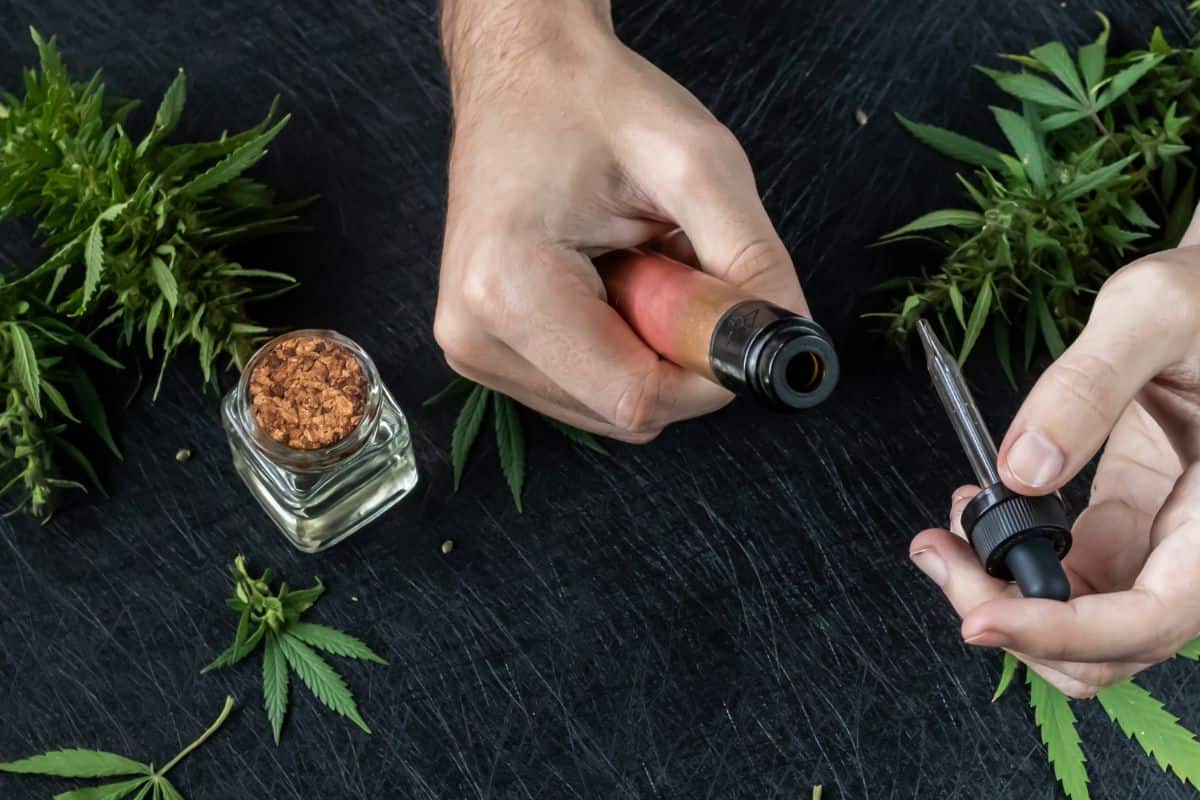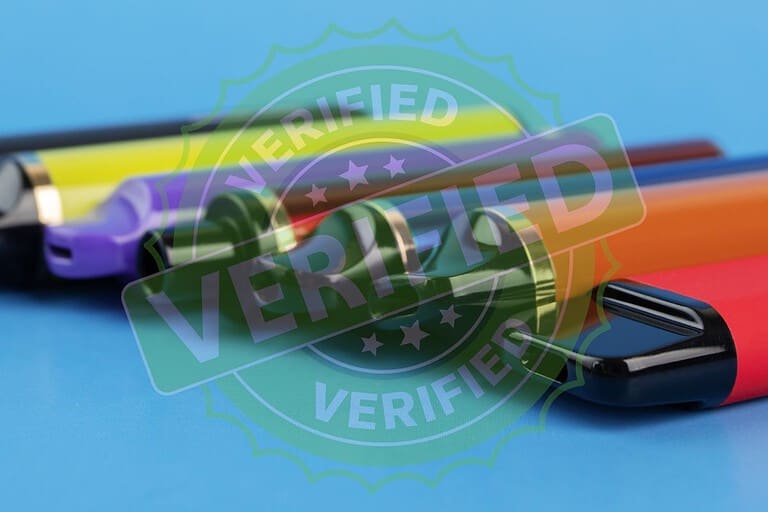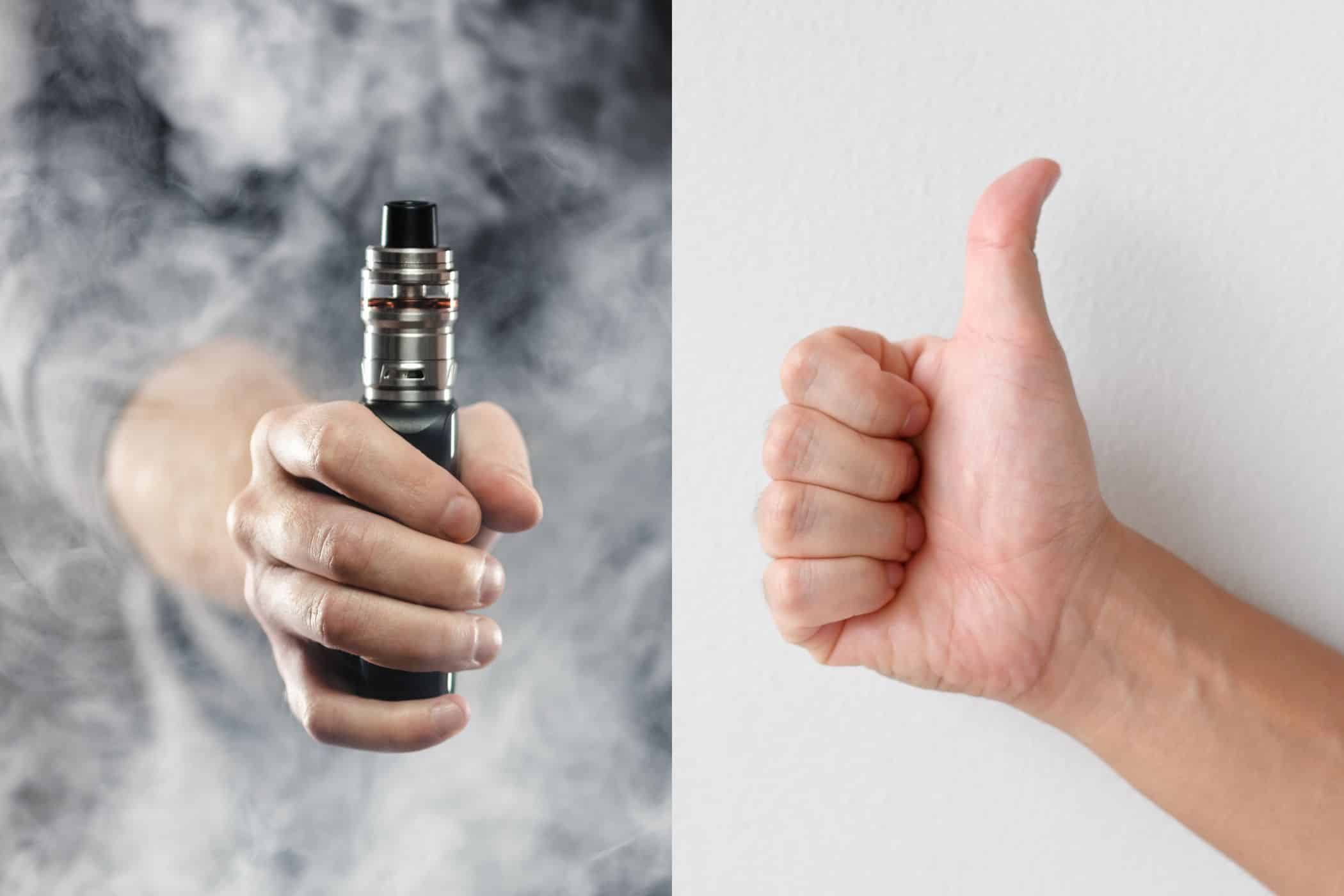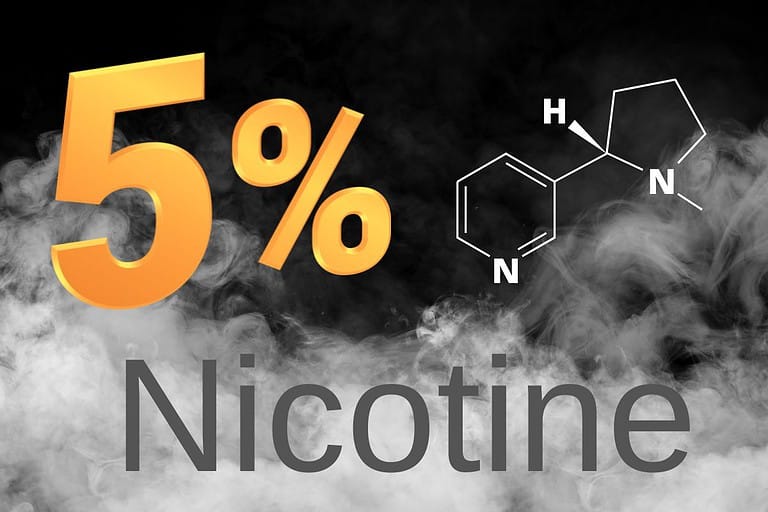How Long Does CBD Vape Stay in Your Body: Understanding the Duration
When considering the use of CBD through vaping, you might be curious about how long it stays in your system. This is especially relevant if you are mindful of drug testing or are concerned about potential long-term effects. Generally, the time CBD remains detectable in the body depends on several factors such as the amount used, frequency of use, an individual’s metabolism, and the method of consumption.
Understanding the duration of CBD’s presence in the body requires an awareness of how it’s metabolized. When you vape CBD, it enters your lungs and is quickly absorbed into the bloodstream. This method provides a rapid onset of effects, but it also means that the CBD may leave your system faster compared to other forms of consumption, like edibles or tinctures. Typically, CBD can be detectable in bodily fluids for up to several days after use, but this can vary widely based on personal factors.
NEW CUSTOMER DISCOUNT
Save 15%
15% OFF YOUR ENTIRE ORDER FOR NEW CUSTOMERS USE CODE WELCOME15!
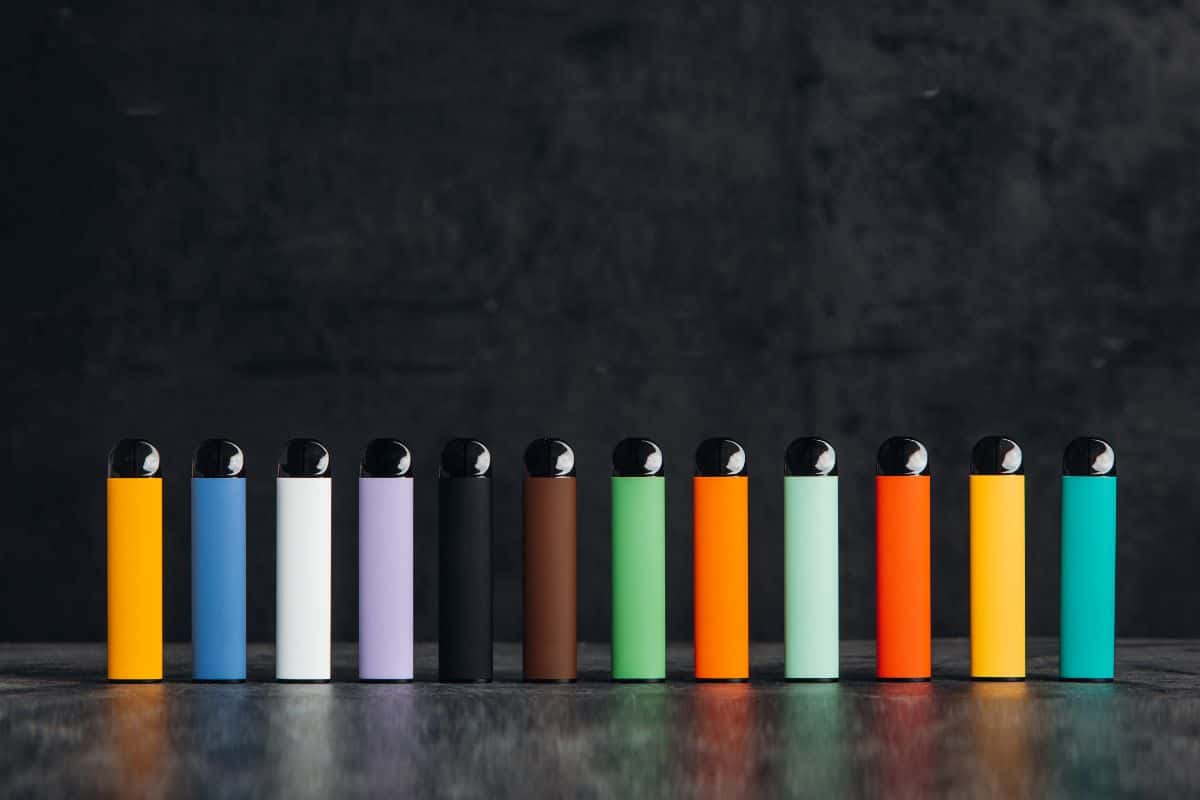
While there is no one-size-fits-all answer, most research indicates that CBD is likely to be cleared from your system within a week of last use. However, the exact timeframe can differ depending on your body’s rate of metabolism, your body mass, and your hydration levels. If you’re considering using CBD and are concerned about drug testing, it’s important to be informed that while CBD itself does not usually appear on a drug test, some CBD products may contain trace amounts of THC, which could potentially lead to a positive test result.
Table of Contents
Understanding CBD
In this section, you’ll gain insights into what CBD is and the variety of forms it comes in. This information is essential to understanding how long CBD from vaping might stay in your body.
What is CBD?
Cannabidiol, or CBD, is a compound found in both hemp and marijuana plants, which are varieties of the Cannabis sativa species. Unlike THC, the primary psychoactive component in marijuana, CBD does not produce a high. This attribute makes it an attractive option for individuals seeking potential therapeutic benefits without mind-altering effects.
Different Forms of CBD
CBD comes in several forms, all of which can affect how quickly it’s absorbed and how long it stays in your system:
- Oil: CBD oil is perhaps the most prevalent form. It’s made by extracting CBD from the cannabis plant and then diluting it with a carrier oil like coconut or hemp seed oil.
- Capsules: Similar to other supplements, CBD is available in capsules, which provide a convenient and measured dose.
- Edibles: These are foods infused with CBD, such as gummies, which offer a discrete way to consume CBD.
- Tinctures: A tincture is a concentrated extract that’s typically administered with a dropper directly under the tongue for quick absorption.
- Vaping: The act of inhaling vaporized CBD oil, often through a vaping pen or mod.
- Isolate: CBD isolate is a pure form of CBD, with no other cannabis plant compounds present.
- Full-Spectrum CBD: This form includes all the phytochemicals naturally found in the cannabis plant, including CBD, terpenes, and other cannabinoids like THC.
- Broad-Spectrum CBD: Similar to full-spectrum, this form contains multiple cannabis plant compounds but typically lacks THC.
Each form has differing bioavailability and onset times, influencing how CBD interacts with your body and ultimately how long it may remain detectable.
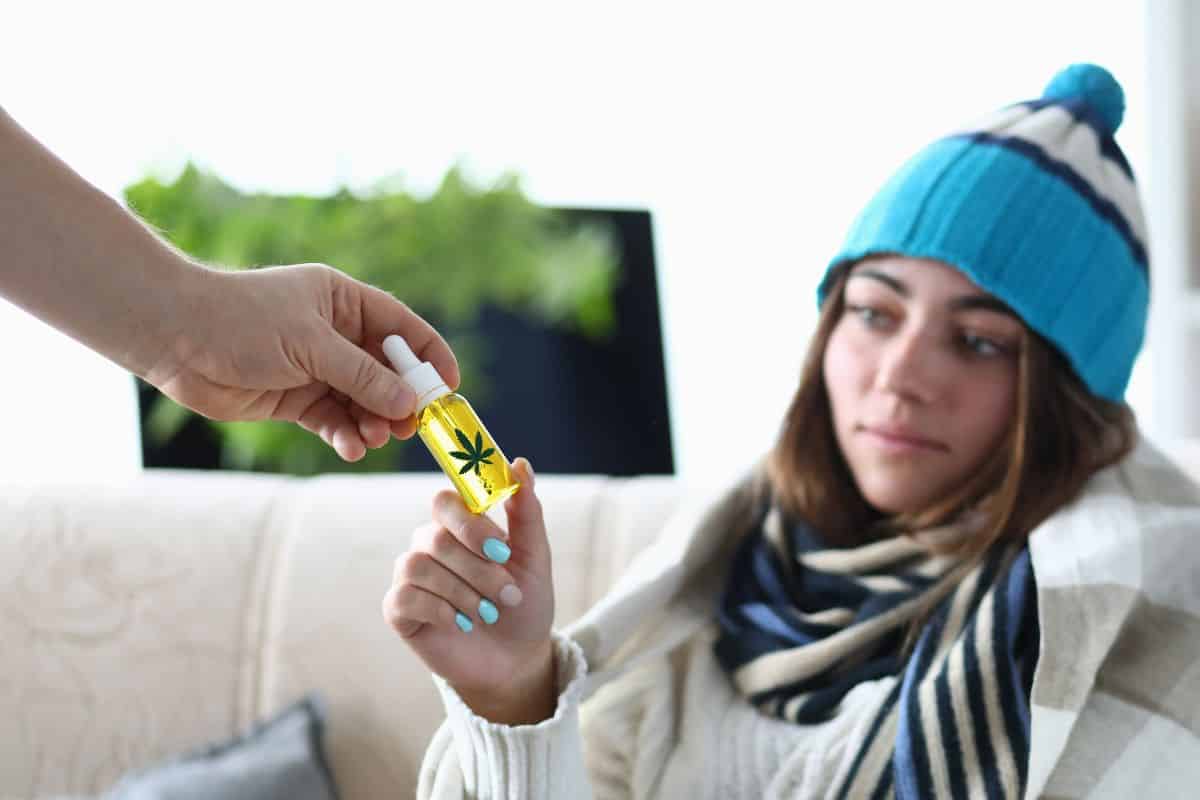
CBD Metabolism and Body Interaction
When you vape CBD, the compounds are swiftly absorbed into your bloodstream, undergoing a metabolic process primarily in the liver. The way CBD interacts with your body can affect the duration it remains active.
How CBD is Metabolized
The metabolism of CBD occurs mainly in your liver, where it is broken down by enzymes before it’s distributed through your bloodstream. The bioavailability of inhaled CBD is generally high, meaning a significant proportion reaches systemic circulation. The primary metabolic pathway for CBD involves the cytochrome P450 enzymes, which are responsible for breaking down various substances, including cannabinoids.
- Half-life: Research shows CBD has an estimated half-life of 18-32 hours in your body, but this can vary based on individual factors.
Factors Affecting CBD Metabolism
The rate at which CBD is metabolized in your body may be influenced by several factors:
- Body Mass and Body Mass Index (BMI): Individuals with higher body mass may process and store cannabinoids differently, potentially leading to a longer duration in the body.
- Genetics: Your genetic makeup can determine enzyme activity levels and thus influence CBD metabolism rates.
- Age: Metabolic rates can decrease with age, which might slow down the processing of CBD.
- Diet: What you eat, how often, and the timing of your meals can affect liver enzyme activity and fat cells, impacting the metabolism of fat-soluble substances like CBD.
- Liver Function: Given the central role of the liver in metabolizing substances, any impairment can affect the clearance rate of CBD from your body.
By understanding these factors, you gain insight into how CBD is metabolized and its interaction with your body, affecting how long it may stay in your system.
CBD Consumption Methods
When you choose to use CBD, your method of consumption directly affects onset, duration, and intensity of effects. Various methods offer different experiences and benefits, tailored to your lifestyle and health needs.

Oral Ingestion
Taking CBD orally, through products like capsules and edibles, is a straightforward method that allows for easy dosage control. The compound must pass through your digestive system, which can prolong the onset but also extend the duration of effects.
Sublingual Administration
Sublingual administration involves placing CBD oil drops under the tongue. This method allows CBD to be absorbed directly into your bloodstream, offering faster results than oral ingestion with a quick and straightforward dosage application.
Inhalation and Vaping
Inhalation via vaping devices rapidly delivers CBD to your system. When you vape, the CBD enters your lungs and diffuses directly into your bloodstream, making it one of the quickest consumption methods with controllable dosages.
Topical Application
Applying CBD through creams and lotions directly to the skin offers localized relief. This method bypasses the bloodstream, focusing on targeting the specific area of your body with a subtle onset and dosage typically dependent on usage amount.
Duration of CBD in the Body
Understanding how long cannabidiol (CBD) vape residuals persist in your system is essential if you’re looking to manage dosage, anticipate the longevity of effects, or prepare for a drug test. Several factors influence the presence of CBD in your body, ranging from the mode of consumption to your individual body composition.
Average Time of CBD in the Bloodstream
The time CBD remains detectable in your bloodstream is highly variable, but it is typically measurable for up to 72 hours after vaping. However, half-life—the time taken for the amount of CBD in your body to reduce by half—can range from 1 to 2 days depending on the dosage and your body’s metabolism.
Longevity of Effects
The effects of vaping CBD typically set in rapidly due to direct absorption through your lungs, with most users reporting a feeling within minutes. These effects, depending on the dose and individual response, can last anywhere from 2 to 6 hours. It is important to note that while the noticeable effects may dissipate, CBD may still be present and active in your system.
Factors Influencing Duration
Several key factors dictate how long CBD vape will stay in your body:
- Frequency of Use: Regular users may find that CBD accumulates in their body, potentially extending the detection window.
- Dosage: Higher doses of CBD may increase the duration it remains in your system.
- Body Composition: Factors like your weight and body fat percentage can affect how quickly CBD is metabolized.
- Metabolism: Your metabolic rate dictates how swiftly substances are broken down and eliminated from your body.
- Urine pH: The acidity of your urine can impact how long CBD lasts in your system.
It’s vital to understand that these factors interplay differently for each individual, making the experience of CBD absorption and duration unique to you.
Implications for Drug Testing
When considering CBD vape products and drug tests, it’s essential to understand how these substances can interact and potentially affect test outcomes.
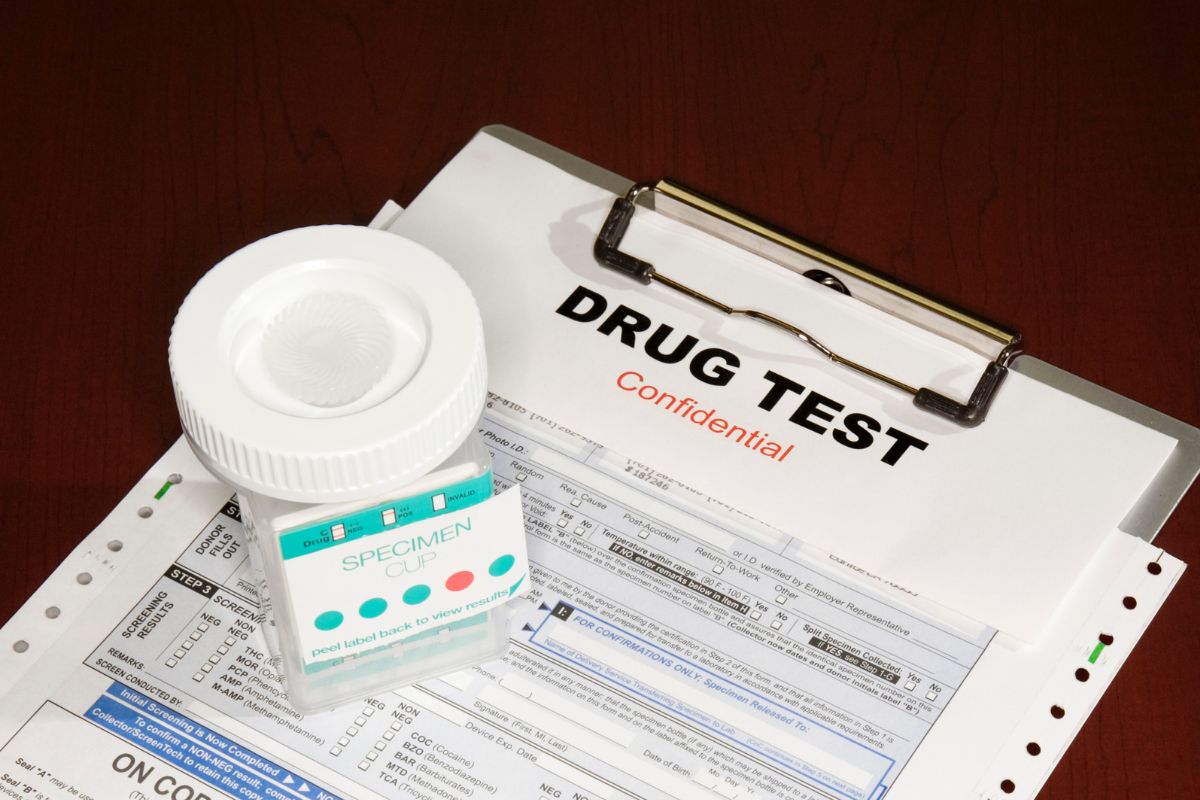
Potential of CBD to Influence Drug Tests
The likelihood of cannabidiol (CBD) triggering a positive drug test is generally low, as these tests typically look for tetrahydrocannabinol (THC), the psychoactive compound in cannabis. However, it’s crucial to be aware that full-spectrum CBD products may contain trace amounts of THC. Even though these amounts are tiny—usually less than 0.3% THC—frequent use of such products might result in enough THC accumulating in your system to cause a positive test for some sensitive drug tests.
Understanding Trace Amounts of THC in CBD Products
CBD products derived from hemp are legally required to have less than 0.3% THC. Despite this low threshold, consistent use over time could lead to detectable levels of THC. It’s important to consider factors such as the amount and frequency of CBD vape use and your body’s metabolism when evaluating the risk of a positive drug test.
- Types of Drug Tests: Common drug tests include urine, blood, and hair tests, with varying detection windows and sensitivities.
- THC Detection: A standard drug test primarily screens for THC, not CBD. However, because trace amounts of THC might be present in CBD vapes, there’s a potential for a positive result if accumulated THC levels in your body surpass the test’s thresholds.
- Factors Impacting Test Results: Your physiological makeup, such as metabolic rate, body fat content, and overall health, plays a role in how long THC can be detected in your system after using a CBD vape product.
Remember, the CBD effects themselves are not what’s being screened for in a drug test, but rather the psychoactive THC. Even if using a product labeled as pure CBD isolate, due diligence is recommended to ensure no cross-contamination or mislabeling has occurred, as these could also influence drug test outcomes.
Health Benefits and Side Effects
When considering CBD vape products, you should be aware of both the potential therapeutic benefits and the side effects. While CBD is associated with several positive health effects, such as managing certain symptoms, it is also important to understand and weigh these benefits against the possible adverse effects on your body.
Therapeutic Uses of CBD
CBD, known for its non-psychoactive properties, is widely acknowledged for its therapeutic potential. Evidence suggests that CBD vaping can be beneficial in:
- Treating Epilepsy: A significant reduction in seizure frequency is seen in some forms of epilepsy.
- Alleviating Anxiety: CBD may help manage anxiety, offering a calming effect on mood.
These benefits are due in part to CBD’s ability to interact with the body’s endocannabinoid system, which plays a role in regulating various functions.
Known Side Effects and Precautions
However, along with these potential benefits come certain side effects, such as:
- Fatigue: You might experience drowsiness or tiredness.
- Diarrhea and Nausea: Gastrointestinal distress can occur in some users.
- Medication Interference: CBD can interact with other medications, potentially altering their effects.
It’s essential to monitor how your body responds to CBD and also consider the long-term effects of vaping CBD oil. Any persistent adverse reactions should prompt you to consult a healthcare professional.
Legal Considerations and Regulations
When considering the use of CBD vape products, you should be aware not only of its physical effects but also the legal landscape and regulatory framework that governs its usage.
Current Legal Status of CBD
The legal status of CBD in the United States is intricately linked to the source of the CBD—hemp or marijuana. Following the 2018 Farm Bill, hemp-derived CBD products containing less than 0.3% THC became federally legal. However, state laws can vary significantly, making it crucial for you to check your state’s regulations. Products made from marijuana, on the other hand, are subject to state laws regarding medical and recreational cannabis.
When purchasing CBD products, the label is your most reliable source of information. Ensure it is clearly labeled and consider products that have undergone third-party testing as this is often a sign of quality and compliance with legal standards.
FDA Regulations on CBD and Hemp Products

CBD products that are marketed as dietary supplements must comply with the Food and Drug Administration’s (FDA) regulations. While the FDA has approved some cannabis-derived products, such as prescription medications containing CBD, it has not fully endorsed CBD vapes. This is because the agency is still reviewing the safety and effectiveness of CBD products.
In the meantime, the FDA mandates specific labeling requirements and prohibits the sale of any CBD products that are marketed with therapeutic claims. They also oversee the marketing of products to ensure that they do not pose a threat to public health. As these legal landscapes continue to evolve, watch for updates from the FDA and your local government to stay informed.
Guidance for Consumers
When considering the use of CBD vape products, you should be well-informed about choosing the right item and consulting healthcare providers to ensure it aligns with your health needs and lifestyle.
How to Choose the Right CBD Product
Your selection of a CBD product can significantly affect how your body responds and how long the substance remains in your system. Opt for full spectrum products if you seek the entourage effect, which may offer enhanced health benefits due to the presence of multiple cannabinoids. Investigate the CBD half-life which refers to the time it takes for half of the CBD to be eliminated from your body, typically for vaporized CBD this ranges between 2 to 5 days. Check product labels for dosage indications and consider your frequency of use to maintain control over the effects. While inhaling vaporized CBD provides a quick onset, the duration of its stay in your body is influenced by your biochemistry and the frequency of use. Be aware that while CBD is non-psychoactive and an overdose is highly unlikely, responsible usage is still vital.
- Full Spectrum: May contain traces of THC; choose only if you are not subject to drug testing.
- Dosage: Start with a low dosage and increase gradually as needed.
- Frequency: Daily users will retain CBD longer than occasional users.
Consulting with Healthcare Providers
Your doctor should be your ally when it comes to using CBD, especially if you have underlying health concerns, are pregnant, or are breastfeeding. Discuss with them any potential influence on your appetite, the need for support with specific health issues, and the proper form of CBD that might be suitable for you, which could range from vaporized forms to topicals such as balms. Healthcare providers can also advise on how CBD may interact with other medications and supplements you are taking. Always look out for the latest research and studies conducted by knowledgeable scientists and researchers to provide additional layers of confidence in your choice.
- Healthcare Provider: Always your first point of contact; they understand your personal health and biochemistry.
- Medication Interactions: CBD can affect how other drugs work; your doctor can adjust dosages accordingly.
- Breastfeeding: Discuss potential risks as CBD may pass through breast milk.
Adopting these strategies can help ensure that your experience with CBD is both safe and effective while respecting your body’s unique characteristics.
Frequently Asked Questions
In this section, you’ll find detailed responses to common queries regarding the duration and effects of CBD from vaping. These answers are based on current research and the shared experiences of CBD users.
What determines the duration of CBD presence in the system?
The presence of CBD in your system is influenced by several factors including metabolism, frequency of use, and the body’s fat content. Higher metabolism speeds up the elimination, while frequent use and higher fat content may prolong the duration.
How does the dosage of CBD affect its longevity in the body?
If you consume higher doses of CBD, it generally stays in your system longer. This is because your body takes more time to break down and eliminate larger amounts of the substance.
Can the effects of CBD vapes last differently than other forms of CBD?
The effects of vaping CBD may be felt more quickly than other methods such as edibles or tinctures, but the duration of its presence in the body may not significantly differ. Your individual physiological factors play a leading role.
What methods exist to expedite the elimination of CBD from the body?
Hydration, exercise, and a diet high in fiber can potentially accelerate the elimination of CBD from your system by boosting metabolism and promoting detoxification processes.
Is daily usage of CBD vapes considered safe for users?
Daily usage of CBD vapes is generally considered safe for most users, but the long-term effects are not thoroughly understood, and individual experiences may vary. Always consult healthcare advice when considering regular usage.
What sensations can be expected after using a CBD vape?
After using a CBD vape, you might experience relaxation and a sense of calm. Some users report mild euphoria, while others may feel relief from discomfort. The specific sensations can vary depending on the individual and dosage.

